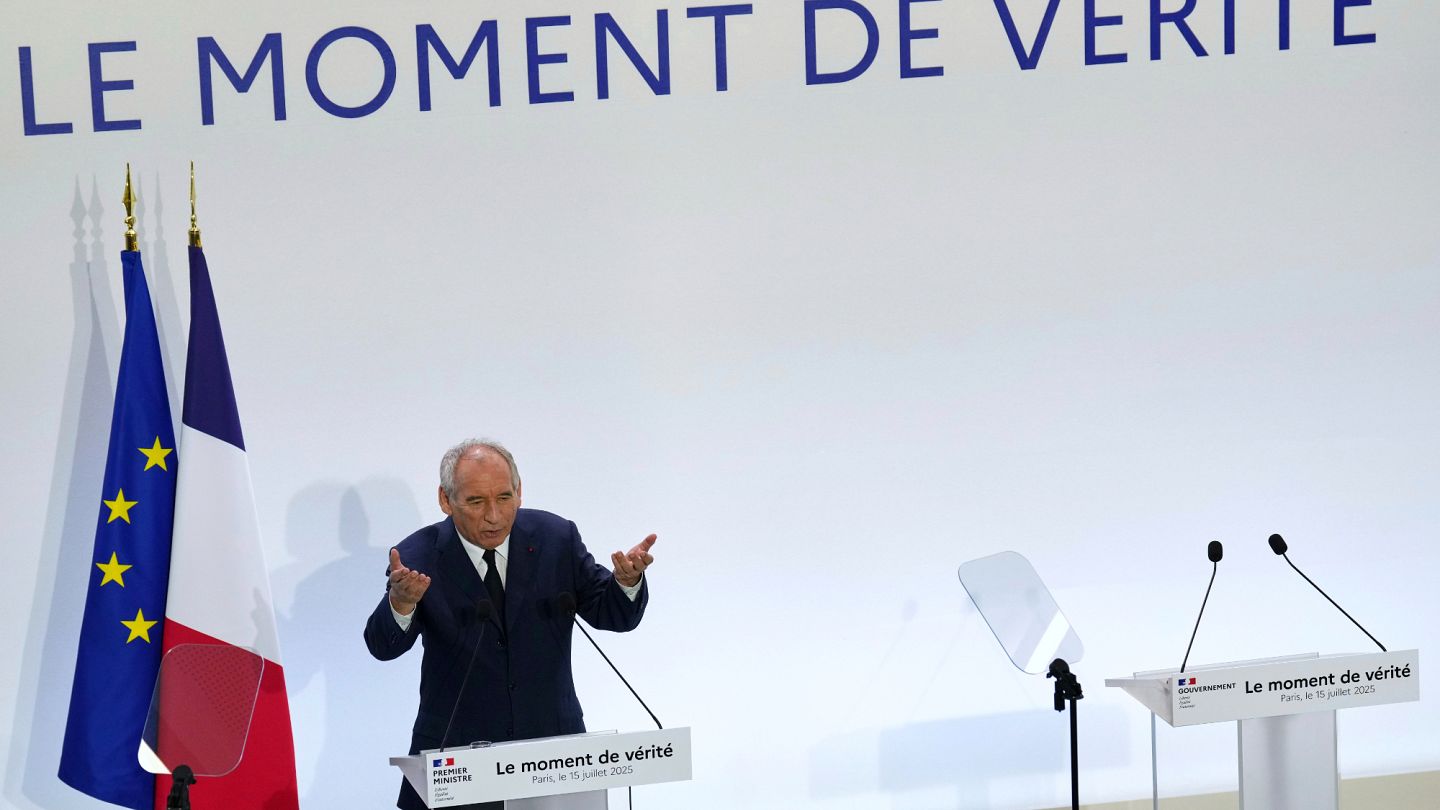French PM Bayrou seeks confidence vote on 8 September over budget plans
French Prime Minister François Bayrou has called for a confidence vote over his government's unpopular €44 billion budget cut plan.
French Prime Minister François Bayrou has called for a confidence vote in France's National Assembly on 8 September, as he seeks support for his minority government's budget cut plan.Bayrou annouced the confidence vote on Monday, which he said would reveal whether other parties are truly prepared to support the plan to cut €43.8 billion from the national budget.Three opposition parties have already stated they will not back him - the far-right National Rally, The Greens and the Socialist Party. Bayrou's minority government is set to collapse if he loses the vote.The prime minister acknowledged the risk of seeking the confidence vote, but noted it was necessary as the country was going through "a moment of hesitation and turmoil" that required "clarification". “We face an immediate danger which we must tackle … otherwise we have no future,” he said.Referring to the annual budget, he said "last year, it was €60 billion. This year, it will be €66 billion. Next year, in 2026, it will be at least €75 billion."He also stated that in his view, debt is a question of "sovereignty" and "independence".Bayrou's budget cut proposalsThe cuts proposed in the budget involve reducing the number of people employed in the civil service and a "solidarity contribution" for "the wealthiest" as well as pension reforms.They also propose getting rid of two public holidays, with Easter Monday and 8 May cited as possible contenders.Bayrou said that would make it possible to increase productivity without raising taxes or VAT.8 May has historical significance in France and across Europe, as it marks the surrender of Nazi Germany in 1945 and the end of World War II on the continent."To only debate the measures is to ignore the need for an overall plan", Bayrou explained. He also stressed that all the measures, such as the removal of two public holidays, are "amendable" and "debatable". Bayrou's predecessor Michel Barnier lost a no-confidence vote in December last year, forcing him to resign after just three months in office. Bayrou's strategy on this occasion relies on two key pillars - solidifying his support by French President Emmanuel Macron and convincing the public of the value of his recommended reforms. The confidence vote is set to take place on two days before protests planned largely by leftist organisations and trade unions.The protests have been compared to the "gilets jaunes" or yellow vests protests in 2018. These demonstrations had initially erupted in response to fuel price hikes and the rise in cost of living, but eventually became symbolic of a broader movement against Macron's economic reforms.


